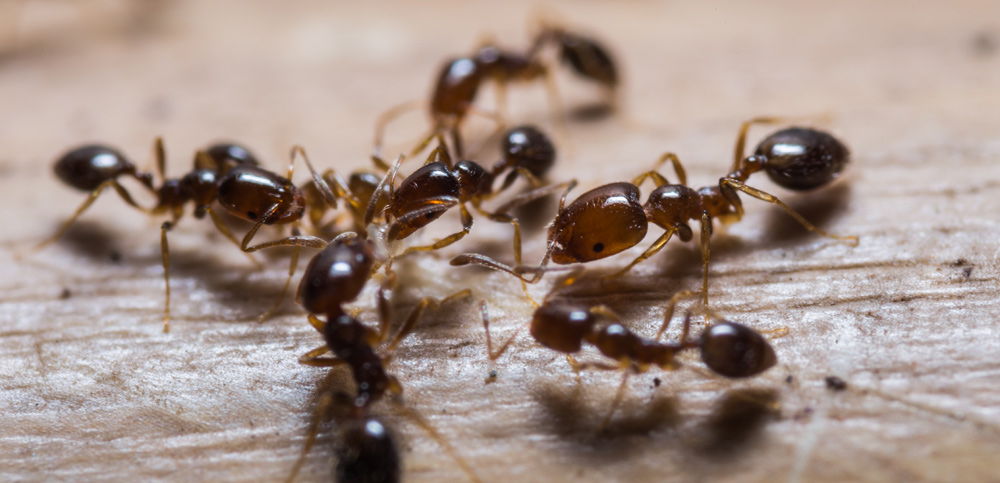
Ants are social insects that live together in colonies. These colonies made up of workers and a queen and can range in size from a few dozen to millions of individuals.
Most ant species build nests which are often found close to sources of food and water. Depending on the species, ants may create nests in the ground, often under concrete slabs or stones while others make their home in wood - posts, fallen trees or buildings.
Keep it clean - remove the sources of food
Ants will eat almost any kind of food. They seem to like very sugary, fatty/oily or protein-rich foods.
Keeping your house clean is a huge help in preventing ant infestations. The aim is to take away potential sources of food:
- Take out the rubbish regularly.
- Wipe up spills and sweep up food crumbs.
- Avoid leaving dirty dishes out
HOT TIP: Spray vinegar mixed with water around bowls of pet food to keep ants from feasting there.
Remove the trails - eliminate the pheremone scent trails
The worker ants are the ones that you see out foraging for food in your house or garden. When they find food, the workers place a pheremone scent trail marker that tells other ants where to find food.Ants may choose to feed on sweet foods, protein foods, or greasy foods, invading homes to forage for these substances.
The pheremone trails left by ants are powerful - sweeping or mopping isn’t enough to eliminate it. However, you can make up a solution of one part vinegar with three parts water in a spray bottle, then spray wherever you’ve seen ants in the past. This will help against outdoor nesting ants that that come into the house foraging for food but it wont hwlp if the ants are actually nesting indoors.
Eliminate the colony OR remove the nest
Ant baits work by combining an attractive food source with a slow-acting poison. Foraging worker ants take the toxic bait back to the colony where they’ll share it with the rest of the ants, including the queen. This may be enough to destroy the ant colony. However, sometimes this isn’t enough and the nest needs to be found and removed to eliminate the problem completely.

 Ants
Ants
 Borer
Borer
 Spiders
Spiders
 Cockroaches
Cockroaches
 Flies
Flies
 Wasps
Wasps
 Fleas
Fleas
 Bed Bugs
Bed Bugs
 Carpet Beetles
Carpet Beetles
 Rodents
Rodents